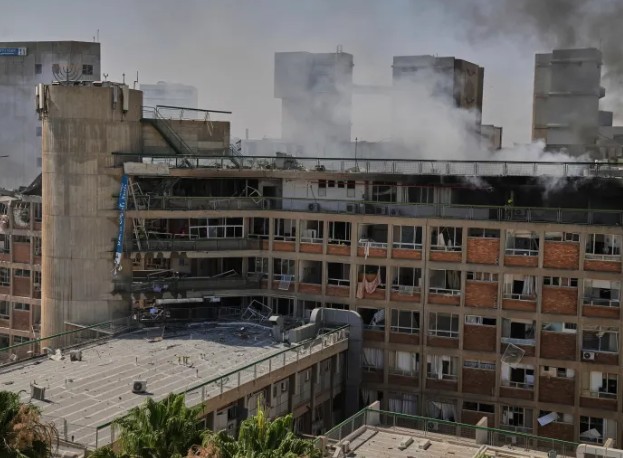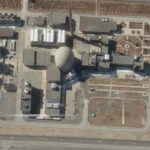A dramatic escalation in the Israel–Iran conflict occurred overnight as Iranian ballistic missiles struck the Soroka Medical Center in Beersheba, Israel, causing heavy structural damage and injuring over 200 people, including multiple patients and hospital staff. Two other Israeli cities, Holon and Ramat Gan, also suffered direct missile impacts, wounding dozens of additional individuals .
Iran’s offensive reportedly involving some 30 missiles launched in coordinated waves marked a bold escalation in its campaign against Israeli targets. The Soroka Medical Center, crucial for the health and trauma response of southern Israel, sustained significant damage. Despite parts of the hospital being evacuated before the strike, at least 71 people suffered light injuries there alone.
Explosions, air raid sirens, and fires were reported across Beersheba, Holon, Ramat Gan, Tel Aviv, and Jerusalem. Local authorities reported over 270 injuries, with several patients in serious or critical condition.
In response, Israel launched precision airstrikes on Iranian nuclear and military sites, including facilities in Natanz, Isfahan, Arak, and Khondab. Defense Minister Israel Katz issued a stark warning, stating Iran’s Supreme Leader Ayatollah Khamenei “can no longer be allowed to exist”
Despite targeting nuclear infrastructure, the Israeli government emphasized that regime change was not yet its declared aim, though its strike campaign aims to cripple Iran’s uranium enrichment and missile capabilities
International Reaction
Global leaders have voiced alarm and called for restraint:
-
The United States, under pressure to support Israel, remains cautious with President Trump weighing military and diplomatic options
-
European leaders are urging de-escalation and pushing for renewed diplomacy, with possible talks scheduled in Geneva.
-
Several countries, including Canada, Australia, and the UK, have begun evacuating citizens amid airspace closures and rising regional risk.
The Strait of Hormuz, a vital energy corridor, remains a flash point, with Iran hinting that it could close this route in response to any U.S. intervention .
Risk of Wider War
Analysts warn the situation is dangerously close to widening into full-blown regional war, especially as:
-
Hezbollah and Iran-backed militias prepare to escalate.
-
U.S. naval and military deployments are being readied for missile defense .
With civilian infrastructure under fire and inflammatory rhetoric emerging from both Tehran and Jerusalem, the risk of miscalculation—and broader conflict—is at its highest since the exchanges began.



